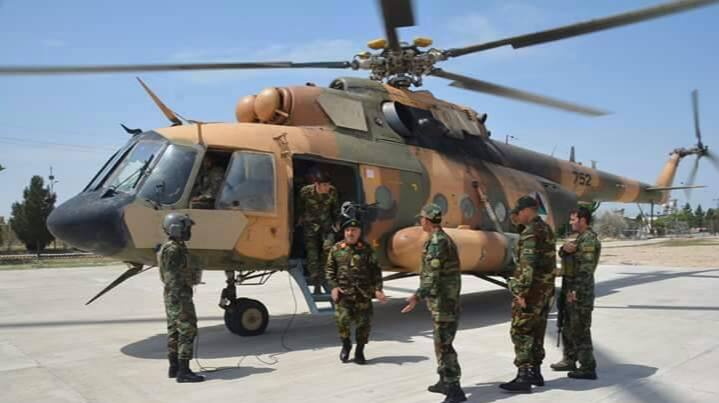A big number of former members of Afghan Air Force (AAF), including pilots, said have spoken about being at risk in Afghanistan and lack of support by their former bosses who vowed to help them in the evacuation process by former allies of Afghanistan following the fall of Kabul.
A list seen sent to Amu by former members of the AAF shows that 349 of them, including 30 women, have been left in Afghanistan.
The list was sent to former senior security officials to be sent to Afghan allies for getting help from them in their evacuation, but it was never shared with any country. Amu reporter spoke with 10 of the officers whose names were on the list.
Missing the flight
The AAF officers said they were in an online class in their training camp at Kabul Airport when Kabul fell to the Taliban on August 15, 2021. There was panic after that, the class was stopped and everyone tried to leave camp, the officers said.
They said the scene looked like moments after a big blast in which no one knows where to go.
One of the officers said on condition of anonymity that he and his colleagues decided to remain on their posts, but when they saw their comrades leaving the office and the training center one by one using ordinary outfits, they too decided to leave the airport.
“We were in an online class with our American and Afghan trainers when we heard the rumours on fall of different parts of Kabul. We stopped our class. Everyone was trying to leave (the compound). We fled the airport and we are without any fate so far,” said the officer.
Another officer who also spoke on condition of anonymity said he was at the airport two days after the fall of Kabul during which he worked with foreign forces to ensure the security of Kabul Airport, but on the third day, he left the airport due to remaining with an uncertain fate.
Bitter experiences under Taliban rule and complaints from inattention of their seniors in the evacuation process are the two common issue shared by all those officers who spoke to Amu.
Another member of the air force said that their commanders had vowed them to provide the ground for their evacuation, but nothing has been done in this respect in the past year.
“Our seniors added the names of their relatives as Air Force members to the list… And we were deceived,” said the officer.
Gen. Fahim Ramin, former commander of Afghan Air Force in a phone conversation with Amu rejected the allegations by AAF officers.
“At that time, I was not aware of any list and as a responsible, I am not aware of other details,” he said.
AAF members killed after fall of Kabul
Data collected from different sources show that at least three pilots – Sefatullah, Hanifullah and Mohammad Ali – have been killed by the Taliban in Daikundi, Herat and Nuristan provinces over the last year.
The colleagues of the pilots said that their families are faced with a bad economy and psychological problems.
A female officer said that Mohammad Ali Hazara, one of the pilots, was her classmate and that the Taliban killed him in front of his family.
He said that she and most of her colleagues have not seen their families over the last year over security reasons.
Life after fall of Kabul
Life after the fall of Kabul for people like the former AAF members is like living anonymously,
A former AAF member said on condition of anonymity that they have lived anonymously over the last year and even they have not been able to provide financial support to their families.
He said that his father’s house in a northern province has been changed into an outpost by the Taliban and some of his relatives and family members have been arrested and have been taken to Pul-e-Charkhi prison in Kabul. He did not provide more details on it over security reasons.
One officer said that his father and uncle were wounded by the Taliban because they two were also former members of Afghan Defense and Security Forces.
“We don’t have safety here anymore. The Taliban destroyed our three-story building by placing bombs. How can I trust in the Taliban’s general amnesty?” he asked.
Taliban was accused of extrajudicial killings in a report by UN in July, especially of the former members of Afghan military, but the group has rejected the findings of the report as baseless.





